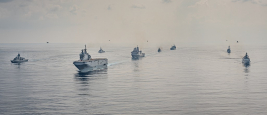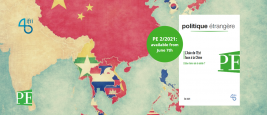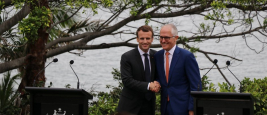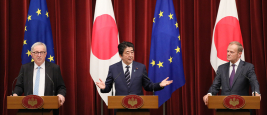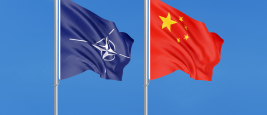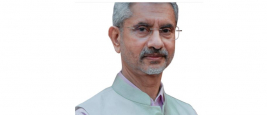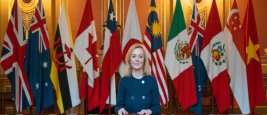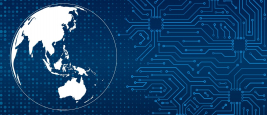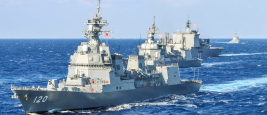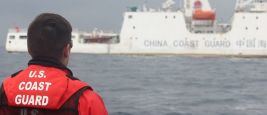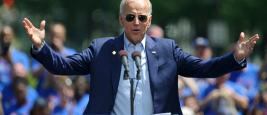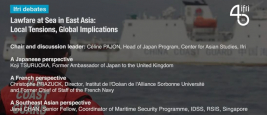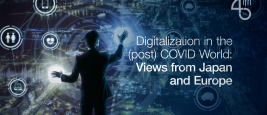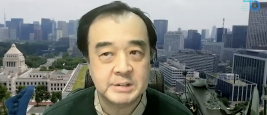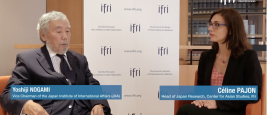The announcement of the new AUKUS alliance between Australia, the UK and the U.S. came as a shock for France.

Japan
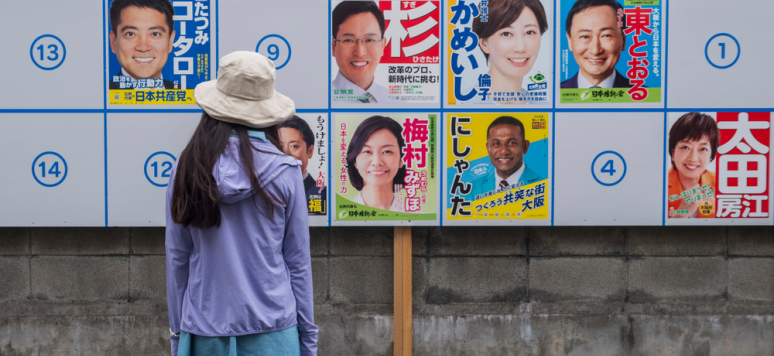
As the international system undergoes a major overhaul, Japan is emerging as one pillar of the multilateral rules-based order. Despite being often perceived as a declining country, it remains the world's third largest economy and, as a member of the RCEP, CP-TPP and the Japan-EU Economic Partnership Agreement, plays a key role in trade liberalization and norms shaping. In recent years, Tokyo has also demonstrated a proactive diplomacy, especially in the Indo-Pacific area where it is one of the core stakeholders. In this regard, Japan has become a major partner for Europe and for France.
Through its research activities, Ifri's Center for Asian Studies aims to provide a better understanding of Japan's action in the world and to foster the dialogue and cooperation between France and Japan.
Research Fellow, Head of Japan Research, Coordinator of the Program on Pacific Islands,
...
Research Fellow, Center for Asian Studies
...Senior Advisor, Center for Asian Studies
...
A Region of Flashpoints? Security in the Indo-Pacific CSDS Policy Brief, 15/2021, September 16, 2021
The Indo-Pacific mega-region is home to the world’s most fluid, complex, and dangerous security environment. Lingering traditional security flashpoints (Taiwan Strait, North Korea, territorial disputes) are exacerbated by the rise of China and the US–China great power competition.
In May 2018, French President Emmanuel Macron delivered a speech at the Garden Island Naval Base in Sydney, Australia, where he outlined a French strategy for the Indo-Pacific. With this speech, France formally positioned itself as an ‘Indo-Pacific power’ and became the first European country...
In the 2010s, Japan gradually increased economic connections with the Indian Ocean region (IOR) through trade, foreign direct investment, and official development assistance (ODA).
China is now an undeniable heavyweight on the international scene, wielding a remarkable range of political strategies. Studying its position in the surrounding area of Southeast Asia in relation to Japan, Korea, Taiwan, and the Association of Southeast Asian Nations (ASEAN) countries, as well...
EU-Japan relations have undergone a major uplift over the past 5 years. Bound by the Economic and Strategic Partnership Agreements, as well as the Partnership on Sustainable Connectivity, the two once-distant players have been stepping up efforts to address the many shared security concerns in...
Tensions at sea are growing and multiplying both in the East and the South China Seas.
Let’s face it: while there are growing expectations for a French and European enhanced engagement in the Indo-Pacific, when Europeans step up their commitment, or express their willingness to do so, they are often met with disdain, on the ground that they would not make a big difference in...
This paper analyses the common and divergent interests of Japan and the EU in the Indo-Pacific and identifies the most promising areas for cooperation.
When we look back and think about some of the decisive moments in the West’s attitude towards China, it is rather symbolic that all goes back to Tiananmen Square, 1989.
Conference with Subrahmanyam Jaishankar, External Affairs Minister of India Ifri Conferences
How India sees France. A conference with Subrahmanyam Jaishankar, External Affairs Minister of India.
The CPTPP and UK’s accession: What global implications?
The UK is the first State which formally applied to join the CPTPP. Its bid was accepted in early June.
East Asia’s Evolving Economic Order: Toward Cohesion or Fragmentation? Videoconference
The era of hyper globalization is now transforming into an age of geoeconomics, where trade and economic relations are increasingly conditioned by national security concerns. What impact will this shift have on the regional trade architecture and economic strategies in East Asia? <...>
How Strong is the Taiwan-US-Japan Triangle? Visioconférence
The United States is the linchpin of Taiwan’s security. Under Donald Trump’s presidency, as tensions with the People’s Republic of China grew, the US increasingly took steps to signal ever more clearly its commitment to supporting and defending Taiwan, a trend that seems to have continued...
Building up a Green Alliance between Japan and Europe: Opportunities and Challenges
The EU-Japan Green Alliance has been adopted during the 27th EU-Japan Summit in May 2021.
Japan’s Energy and Climate Strategy for 2030 Videoconference
In direct response to the climate diplomacy push by US President Joe Biden, Japanese Prime Minister Yoshihide Suga announced a new 2030 goal to reduce emissions by 46% from 2013 levels, representing a significant additional effort compared to the country’s previous commitment under the Paris...
Lawfare at Sea in East Asia: Local Tensions, Global Implications
Since the end of 2019, more than 20 Notes Verbales have been submitted to the UN Commission on the Limits of the Continental Shelf regarding the claims in the South China Sea (SCS).
Rethinking Health Governance in the COVID era: Visions from Europe and Japan
The COVID-19 pandemics has highlighted the significance, as well as the deep crisis of the health governance system.
Digitalization in the (post) COVID World: Views from Japan and Europe
The COVID-19 crisis has highlighted the importance of accelerating the digital transformation of both the industry and the society.
The Biden Administration: What Consequences for Allies? Views from Japan and France
The US allies greeted the election of Joe Biden with relief, but also with expectations.
Alarmed by China’s rising power, its frictions with neighboring countries in the East and South China seas, allegations of human rights abuses in the Xinjiang region and crackdowns in Hong Kong, European countries are seeking to step up their involvement in the Indo-Pacific region.
Since the end of 2019, more than 20 Notes Verbales have been submitted to the UN Commission on the Limits of the Continental Shelf regarding the claims in the South China Sea (SCS).
The COVID-19 pandemics has highlighted the...
The COVID-19 crisis has highlighted the importance of accelerating the digital transformation of both the industry and the society.
The US allies greeted the election of Joe Biden with relief, but also with expectations.
In this interview, Kunihiko MIYAKE, President of the Foreign Policy Institute; Research Director, The Canon Institute for Global Studies (CIGS) and Special Adviser to Prime Minister Yoshihide Suga’s Cabinet looks at the Japan-US alliance under the Biden administration.
In this interview, Shin Oya, Senior Consulting Fellow, Asia Pacific Initiative and Chief Representative for Strategic Research, JBIC looks at COVID-19's impact on economic security in Japan.
Officially, Japan has “national security” concerns about technology exports to South Korea. Unofficially, World War II still casts an ugly shadow.
The Think Thank 7 (T7) is an engagement group that brings together the leading Think Tanks from the G7 countries in order to analyze and make recommendations on key issues of the G7 presidency.
A dialogue with Yoshiji NOGAMI, Vice-Chairman of the Japan Institute of International Affairs (JIIA).






